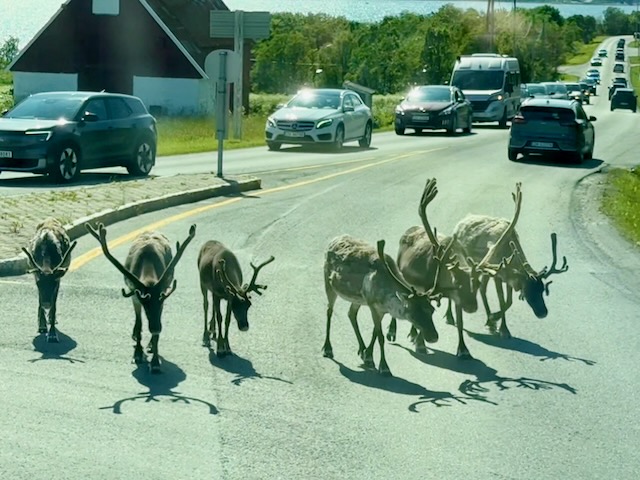The Ultimate Fall 2025 Reading List
“95 BOOKS THE CRITICS THINK YOU SHOULD READ THIS SEASON”
LitHub’s annual list, prepared by Emily Temple:
This season, I processed 28 lists, which collectively recommended a total of 466 books. 95 of these were included 3 times or more, and these I present to you in descending order of popularity.
Blake Crouch Thinks You Should Read These Books — And So Do We
I loved Blake Crouch’s novel Dark Matter, so I was willing to take a look at his recommendations. There’s a lot of variety in his list.
Carl Sagan’s Baloney Detection Kit: Tools for Thinking Critically & Knowing Pseudoscience When You See It
Open Culture discusses astrophysicist Carl Sagan’s 1995 book The Demon-Haunted World: Science as a Candle in the Dark. The article emphasizes the chapter in the book in which “Sagan lays out what he calls his ‘baloney detection kit.’ This assembled metaphorical box of tools for diagnosing fraudulent arguments and constructing reasoned ones involves . . . nine principles.”
When Dementia Steals the Imagination of a Children’s Book Writer
In The New York Times Magazine Katie Engelhart profiles children’s author Robert Munsch, who used to polish his stories by performing them in front of children, then tweaking them according to the audience reactions before publication. Now, at age 76, he has dementia and Parkinson’s disease, and the stories don’t come to him anymore.
Finding Inspiration (and Joy) While Drafting Among the Fjords
I initially latched onto this piece because the trip we took in July was called something like Beautiful Norwegian Fjords. But then I got caught up in the story the writer is telling, of his writing process for his first novel. This seems like an expensive writing plan, but it apparently works for him.
And I did recognize some of the places he references. In fact, in Tromsø, Norway, our tour bus was held up for a few minutes by reindeer in the road:

Best traffic jam ever.
Writing in Your Books Is Good for Your Brain—Here’s Why
“Annotating the margins of books is an important part of deep reading and has a long legacy of merit in both science and literature”
The emergence of such bookish note-taking has sparked a debate between enthusiasts and skeptics: Is the practice of marginalia a bad habit or a beneficial endeavor?
Yes, this topic comes up quite frequently in literary discussion circles, and I pass it on every time I see it. After all, writing in the margins of books gave this blog its name.
17 Long Books That Are 100% Worth the Time
It’s been a long time since I wrote about big books, which I define as works of 500 pages or more. For this piece Meissa Flandreau uses 450 pages as the defining characteristic for her list of long books that are worth the effort and time required to read them.
The Anxiety Plaguing Male Fiction Writers
“For the past several years, writers and pundits have been wringing their hands over how few men are supposedly writing and reading fiction today,” writes Robert Rubsam. Here, he examines the forces behind this situation.
Every Complicated Family is Complicated in Its Own Way: A Reading List
After learning about his “diary-keeping, philandering forefather . . . who’d left 50 years of coded diaries in his wake,” Jeremy B. Jones knew he wanted to write a book about him. In this article he discusses some of the works he used as models—“a handful of beautifully complicated books about complicated family histories”—for how to approach the project.
(It’s Not) The Death of Criticism (Again)
Molly Templeton acknowledges that discussions of the state of artistic criticism, including literary criticism, have come up periodically throughout the ages. She defines criticism as “sustained, considered engagement with art.”
But, she continues what criticism offers is “more ways to appreciate, or understand, or love art; more perspectives than just our own. . . . Art lets us see the world in other ways, and criticism can help us see art and the world in other ways, too.”
“People seem to get it in their heads that criticism is a lot of things it isn’t (most of the time): a tearing-down, an act of jealousy, an act of ego. The criticism I love best is an act of curiosity. An investigation, an exploration. And an open door.
© 2025 by Mary Daniels Brown

